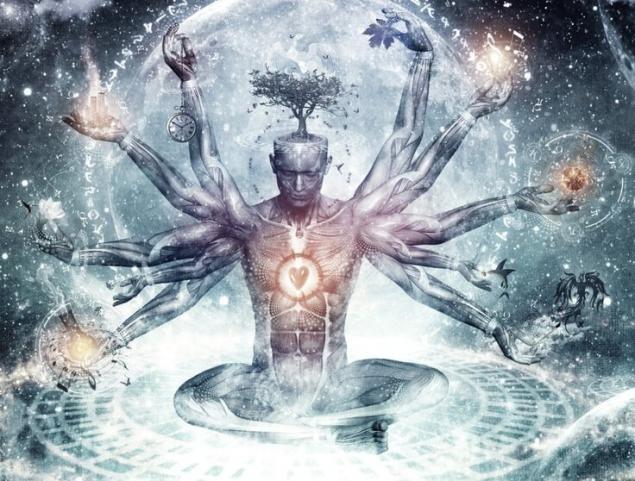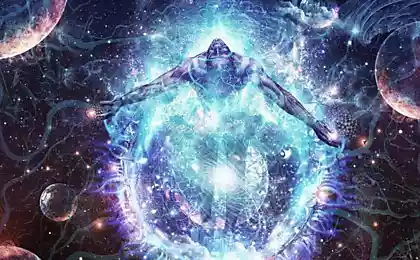989
Debbie Shapiro: the Body reflects everything that happens in the mind
The book remains fresh and exciting, a thrilling story about the close relationship between mind and body. It clearly shows how the conflict situations, fears, feelings of sadness or depression can directly affect your body and cause more or less persistent disorder of its activities, to interfere with the proper performance of the functions of various organs — from the heels up to the roots of the hair.
Almost all the great works on medicine and medicine is frequently omitted one basic concept appears to be as inappropriate. It is the relationship between mind and body that may directly affect health and our ability to recovery.

The fact that these relationships do exist and are very important, are only now beginning to be recognized; deeper than their true value for a person we have yet to learn and accept.
Only when we examine unusual relationships between all aspects of our personality (our needs, unconscious reactions, repressed emotions, desires and fears) and physiological functioning of body systems, their ability to self-control, only then can we begin to understand clearly how great is the wisdom of our body.
Having a extremely intricate systems and functions, the human body manifests infinite intelligence and compassion, constantly giving us tools for further self-discovery, confrontation of emergency situations and beyond our subjectivity. Unconscious energy that underlies each of our actions, manifest in the same way as conscious thoughts and feelings.
To understand this relationship of body and mind, we must, first, understand that body and mind are one entity. Usually we look at our own body as something that we carry with us (often not quite what we would like). That "something" is easily damaged, needs training, regular food and water, a certain amount of sleep and periodic inspections. When there are problems, it gives us trouble, and we take your body to the doctor, believing he or she is able to "fix" it faster and better. Something is broken — and we are that "something" still fix, if it's an inanimate object, devoid of reason. If the body is functioning well, we feel happy, cheerful and energetic. If not, become irritable, frustrated, depressed, perepolnyali pity for themselves.
This view of the body seem to be annoyingly limited. He denies the complexity of energies that determine the integrity of our body — energy, which continuously communicate and flow into each other, depend on our thoughts, feelings, and physiological functions of the different parts of our being. There is no difference between what happens in our minds and what is happening in our bodies. Therefore, we cannot exist separately from the body, which is our life.
Please note: in the English language to denote someone of considerable use the word "somebody", which means both "certain" and "important person", then as a minor personality is defined by the word "nobody", that is, "no" or "nothing."
Our body is us. The state of our being is a direct result of the interaction of multiple dimensions of existence. The expression "my arm hurts" is equivalent to the expression "Pain inside of me manifests itself in my hand." Something that expresses the pain in the arm, no different from the verbal expressions of dysphoria or embarrassment. To say that the distinction exists, means to ignore an integral part of the holistic human being. Treat only the hand is to ignore the source of the pain, which manifested itself in his hand. To deny the connection between body and mind means to give up the opportunity that gives us a body to see, to recognize and address the internal pain.

The effect of the interaction of body and mind easily demonstrate. It is known that anxiety or anxiety for any reason can lead to indigestion, constipation or headache, to accidents. It is proved that stress can lead to stomach ulcers or heart attack; that depression and sadness make our body heavy and lethargic — we have little energy, we lose appetite or eat too much, feel pain or tension in the shoulders. Conversely, the feeling of joy and happiness increases our vitality and energy: we need less sleep and feel fresh, less prone to colds and other infectious diseases, as our bodies become healthier and therefore better resist them.
It is possible to better understand the "mind body", if you try to see all aspects of the physical and psychological life. You need to learn to understand that everything that happens to our physical body, should we be controlled by that we are not just victims and does not have to suffer as long as the pain does not pass. Everything we know inside the body, is an integral part of our holistic existence.
The concept of "mind-body" based on the belief in the unity and integrity of every human being. Although the integrity of a person caused by many various aspects, they cannot be isolated from each other. They are in constant interaction with each other, knowing everything about each other at any time.
The formula of "mind and body" reflects psychological and somatic harmony: the body is merely a gross manifestation of the subtleties of the mind. "The skin is inseparable from emotions, emotions are inseparable from the back, the back is inseparable from the kidneys, the kidneys are inseparable from the will and desires, will and desire are inseparable from the spleen, and the spleen is inseparable from sexual intimacy," wrote Diane Connelly's book, "Traditional acupuncture: the law of five elements" (Dianne Connelly "Traditional Acupuncture: The Law of the Five Elements").
Complete unity of mind and body is reflected in States of health and disease. Each of them is the means by which "mind and body" tells us about what's going on under the bodily form.
For example, illness or accident often coincide with significant life changes: moving to a new apartment, a new marriage or changing jobs. Internal conflicts in this period easily take us out of balance, resulting in a feeling of uncertainty and fear. We become open and exposed to any bacteria or viruses. At the same time, the disease gives us a breather, a time required for adjustment and adaptation to changed circumstances. The disease tells us that we have to stop to do something: it gives us a space where we can reconnect with those parts of ourselves that we no longer cross. In addition, it allows you to see in the long term value of our relationship and communication. Such is the wisdom of mind-body in action, mind and body constantly influence each other and work together.
The transmission of signals from the mind to the body is carried out through a complex system involving circulation, nerves and numerous hormones that are produced by glands of internal secretion. This extremely complex process is regulated by the pituitary and hypothalamus. The hypothalamus is a small area of the brain that controls many body functions, including thermoregulation and heart rate, as well as the activities of the sympathetic and parasympathetic nervous systems. Numerous nerve fibers around the brain converge in the hypothalamus, making psychological and emotional activity associated with bodily functions. For example, vagal nerve from the hypothalamus goes directly to the stomach hence the stomach problems caused by stress or anxiety. Other nerves are drawn to the thymus and the spleen, that is, organs that produce immune cells and regulating their function.
The immune system has enormous potential protection, rejecting everything that might be harmful, but it is also subject to the brain through the nervous system. So it directly suffers from mental stress. When we are subjected to severe stress of any origin, the adrenal cortex releases hormones that disrupt the communication system, your brain, immune system, suppressing immune system and leaving us vulnerable to diseases. Stress is not the only factor that can trigger such a reaction. Negative emotions — or long suppressed anger, hatred, bitterness or depression, and loneliness or bereavement — can also depress the immune system, stimulating hypersecretion of these hormones.
In the brain is the limbic system, represented by a set of structures, including the hypothalamus. It performs two main functions:
Limbic activity links our emotional state with the endocrine system, thus playing a leading role in the relationship between body and mind. Limbic activity and the functioning of the hypothalamus directly regulated by the cerebral cortex, which is responsible for all forms of intellectual activity, including thinking, memory, perception and understanding.
The neocortex of the brain begins to "sound the alarm" in case the perception of any life threatening activity. (Perception doesn't always match the true threat to life. For example, stress is perceived by the body as a mortal danger, even if we think it is not). The alarm affects structures of the limbic system and hypothalamus, which, in turn, affect the secretion of hormones, functioning of immune and nervous systems. Since it warns of danger and prepares to meet with her, it is not surprising that the body not to rest. All this leads to muscle tension, nervousness confusion, spasm of blood vessels, disruption of the functioning of the organs and cells.

In order not to fall into a state of anxiety when reading these lines, it should be remembered that such a reaction is not the event itself but our relationship to it. As Shakespeare said: "in Themselves things are neither bad nor good, they are only in our imagination". Stress is our psychological reaction to the event but not the event itself. The alarm starts a fast and easily disappearing from the memory of a wave of anger or despair, and accumulating the effect of permanent or long-suppressed negative emotions. The longer it is left unreacted mental state, the more damage it can cause, depleting the resilience of "mind-body" and continuously spreading the flow of negative information.
However, there is always the possibility this can change, because we can always work on ourselves and move from simple reactivity to conscious responsibility, from subjectivity to objectivity. For example, if at home or at work we are constantly exposed to noise, we can respond to this increasing irritability, headache and increased blood pressure; at the same time, we can objectively assess the situation, try to find a positive solution. The message that we convey to our body — irritation or adoption, is the signal to which it will respond.
The repetition of negative thought patterns and attitudes, such as anxiety, guilt, jealousy, anger, constant criticalness, fear, etc., can cause us far more harm than any external situation. Our nervous system is entirely under the control of "Central regulatory factor", the controlling center, which is called human personality. In other words, all the situations in our life are neither negative nor positive — they exist by themselves. And only our personal attitude determines their belonging to one category or another.
Our bodies reflect all of the incident and we have experienced, all the movements, needs and actions; we are enclosing in itself all that has happened to us. The body really captures what I experienced earlier: events, emotions, stresses and pains are locked within a solid shell. A good therapist who understands the mind-body can read the entire history of human life, looking at his body type and posture by watching it free or constrained motion, noting the area of tension, and at the same time and characteristics of injuries and illnesses. Our bodies become "a walking autobiography", the features of the Constitution reflect our experience, trauma, anxiety, anxiety and relationships.
Characteristic pose — when one stands, prineseno bent, other is straight, ready to defend — formed in his early youth and "embedded" in our original structure.
Also interesting: the Underlying causes of diseases: jealousy, hatred, pride
How to improve the connection of mind and body — 7 simple steps
Just as the body reflects everything that is happening in human consciousness, and consciousness feels pain and discomfort when suffering body. The universal law of karma of cause and consequence cannot be avoided. Every phenomenon of human life must have its cause. Every manifestation of human embodiment must be preceded by a certain way of thinking or emotional status. Paramahansa Yogananda (Paramahansa Yogananda) says:
"There is a natural connection between the mind and body. Whatever you hold in your mind, all will be reflected in your physical body. Any feelings of hostility or violence against another, strong passion, persistent jealousy, painful anxiety, outbursts of fervor — all it really destroys the cells and causes the development of diseases of heart, liver, kidney, spleen, stomach, etc. Anxiety and stress caused new deadly diseases, high blood pressure, lesions of the heart and nervous system, cancer. The pain that plagued the physical body is the secondary disease."published
From the book Debbie Shapiro "the Mind heals the body"
P. S. And remember, just changing your mind — together we change the world! ©
Source: www.yastr.com/ZDOROVIE_BEZ_LEKARSTV/shapiro/
Almost all the great works on medicine and medicine is frequently omitted one basic concept appears to be as inappropriate. It is the relationship between mind and body that may directly affect health and our ability to recovery.

The fact that these relationships do exist and are very important, are only now beginning to be recognized; deeper than their true value for a person we have yet to learn and accept.
Only when we examine unusual relationships between all aspects of our personality (our needs, unconscious reactions, repressed emotions, desires and fears) and physiological functioning of body systems, their ability to self-control, only then can we begin to understand clearly how great is the wisdom of our body.
Having a extremely intricate systems and functions, the human body manifests infinite intelligence and compassion, constantly giving us tools for further self-discovery, confrontation of emergency situations and beyond our subjectivity. Unconscious energy that underlies each of our actions, manifest in the same way as conscious thoughts and feelings.
To understand this relationship of body and mind, we must, first, understand that body and mind are one entity. Usually we look at our own body as something that we carry with us (often not quite what we would like). That "something" is easily damaged, needs training, regular food and water, a certain amount of sleep and periodic inspections. When there are problems, it gives us trouble, and we take your body to the doctor, believing he or she is able to "fix" it faster and better. Something is broken — and we are that "something" still fix, if it's an inanimate object, devoid of reason. If the body is functioning well, we feel happy, cheerful and energetic. If not, become irritable, frustrated, depressed, perepolnyali pity for themselves.
This view of the body seem to be annoyingly limited. He denies the complexity of energies that determine the integrity of our body — energy, which continuously communicate and flow into each other, depend on our thoughts, feelings, and physiological functions of the different parts of our being. There is no difference between what happens in our minds and what is happening in our bodies. Therefore, we cannot exist separately from the body, which is our life.
Please note: in the English language to denote someone of considerable use the word "somebody", which means both "certain" and "important person", then as a minor personality is defined by the word "nobody", that is, "no" or "nothing."
Our body is us. The state of our being is a direct result of the interaction of multiple dimensions of existence. The expression "my arm hurts" is equivalent to the expression "Pain inside of me manifests itself in my hand." Something that expresses the pain in the arm, no different from the verbal expressions of dysphoria or embarrassment. To say that the distinction exists, means to ignore an integral part of the holistic human being. Treat only the hand is to ignore the source of the pain, which manifested itself in his hand. To deny the connection between body and mind means to give up the opportunity that gives us a body to see, to recognize and address the internal pain.

The effect of the interaction of body and mind easily demonstrate. It is known that anxiety or anxiety for any reason can lead to indigestion, constipation or headache, to accidents. It is proved that stress can lead to stomach ulcers or heart attack; that depression and sadness make our body heavy and lethargic — we have little energy, we lose appetite or eat too much, feel pain or tension in the shoulders. Conversely, the feeling of joy and happiness increases our vitality and energy: we need less sleep and feel fresh, less prone to colds and other infectious diseases, as our bodies become healthier and therefore better resist them.
It is possible to better understand the "mind body", if you try to see all aspects of the physical and psychological life. You need to learn to understand that everything that happens to our physical body, should we be controlled by that we are not just victims and does not have to suffer as long as the pain does not pass. Everything we know inside the body, is an integral part of our holistic existence.
The concept of "mind-body" based on the belief in the unity and integrity of every human being. Although the integrity of a person caused by many various aspects, they cannot be isolated from each other. They are in constant interaction with each other, knowing everything about each other at any time.
The formula of "mind and body" reflects psychological and somatic harmony: the body is merely a gross manifestation of the subtleties of the mind. "The skin is inseparable from emotions, emotions are inseparable from the back, the back is inseparable from the kidneys, the kidneys are inseparable from the will and desires, will and desire are inseparable from the spleen, and the spleen is inseparable from sexual intimacy," wrote Diane Connelly's book, "Traditional acupuncture: the law of five elements" (Dianne Connelly "Traditional Acupuncture: The Law of the Five Elements").
Complete unity of mind and body is reflected in States of health and disease. Each of them is the means by which "mind and body" tells us about what's going on under the bodily form.
For example, illness or accident often coincide with significant life changes: moving to a new apartment, a new marriage or changing jobs. Internal conflicts in this period easily take us out of balance, resulting in a feeling of uncertainty and fear. We become open and exposed to any bacteria or viruses. At the same time, the disease gives us a breather, a time required for adjustment and adaptation to changed circumstances. The disease tells us that we have to stop to do something: it gives us a space where we can reconnect with those parts of ourselves that we no longer cross. In addition, it allows you to see in the long term value of our relationship and communication. Such is the wisdom of mind-body in action, mind and body constantly influence each other and work together.
The transmission of signals from the mind to the body is carried out through a complex system involving circulation, nerves and numerous hormones that are produced by glands of internal secretion. This extremely complex process is regulated by the pituitary and hypothalamus. The hypothalamus is a small area of the brain that controls many body functions, including thermoregulation and heart rate, as well as the activities of the sympathetic and parasympathetic nervous systems. Numerous nerve fibers around the brain converge in the hypothalamus, making psychological and emotional activity associated with bodily functions. For example, vagal nerve from the hypothalamus goes directly to the stomach hence the stomach problems caused by stress or anxiety. Other nerves are drawn to the thymus and the spleen, that is, organs that produce immune cells and regulating their function.
The immune system has enormous potential protection, rejecting everything that might be harmful, but it is also subject to the brain through the nervous system. So it directly suffers from mental stress. When we are subjected to severe stress of any origin, the adrenal cortex releases hormones that disrupt the communication system, your brain, immune system, suppressing immune system and leaving us vulnerable to diseases. Stress is not the only factor that can trigger such a reaction. Negative emotions — or long suppressed anger, hatred, bitterness or depression, and loneliness or bereavement — can also depress the immune system, stimulating hypersecretion of these hormones.
In the brain is the limbic system, represented by a set of structures, including the hypothalamus. It performs two main functions:
- regulates Autonomous operation, for example, supports water balance of the body, the activity of the gastrointestinal tract and the secretion of hormones
- integrates human emotions: sometimes it is even called the "nest of emotions."
Limbic activity links our emotional state with the endocrine system, thus playing a leading role in the relationship between body and mind. Limbic activity and the functioning of the hypothalamus directly regulated by the cerebral cortex, which is responsible for all forms of intellectual activity, including thinking, memory, perception and understanding.
The neocortex of the brain begins to "sound the alarm" in case the perception of any life threatening activity. (Perception doesn't always match the true threat to life. For example, stress is perceived by the body as a mortal danger, even if we think it is not). The alarm affects structures of the limbic system and hypothalamus, which, in turn, affect the secretion of hormones, functioning of immune and nervous systems. Since it warns of danger and prepares to meet with her, it is not surprising that the body not to rest. All this leads to muscle tension, nervousness confusion, spasm of blood vessels, disruption of the functioning of the organs and cells.

In order not to fall into a state of anxiety when reading these lines, it should be remembered that such a reaction is not the event itself but our relationship to it. As Shakespeare said: "in Themselves things are neither bad nor good, they are only in our imagination". Stress is our psychological reaction to the event but not the event itself. The alarm starts a fast and easily disappearing from the memory of a wave of anger or despair, and accumulating the effect of permanent or long-suppressed negative emotions. The longer it is left unreacted mental state, the more damage it can cause, depleting the resilience of "mind-body" and continuously spreading the flow of negative information.
However, there is always the possibility this can change, because we can always work on ourselves and move from simple reactivity to conscious responsibility, from subjectivity to objectivity. For example, if at home or at work we are constantly exposed to noise, we can respond to this increasing irritability, headache and increased blood pressure; at the same time, we can objectively assess the situation, try to find a positive solution. The message that we convey to our body — irritation or adoption, is the signal to which it will respond.
The repetition of negative thought patterns and attitudes, such as anxiety, guilt, jealousy, anger, constant criticalness, fear, etc., can cause us far more harm than any external situation. Our nervous system is entirely under the control of "Central regulatory factor", the controlling center, which is called human personality. In other words, all the situations in our life are neither negative nor positive — they exist by themselves. And only our personal attitude determines their belonging to one category or another.
Our bodies reflect all of the incident and we have experienced, all the movements, needs and actions; we are enclosing in itself all that has happened to us. The body really captures what I experienced earlier: events, emotions, stresses and pains are locked within a solid shell. A good therapist who understands the mind-body can read the entire history of human life, looking at his body type and posture by watching it free or constrained motion, noting the area of tension, and at the same time and characteristics of injuries and illnesses. Our bodies become "a walking autobiography", the features of the Constitution reflect our experience, trauma, anxiety, anxiety and relationships.
Characteristic pose — when one stands, prineseno bent, other is straight, ready to defend — formed in his early youth and "embedded" in our original structure.
Also interesting: the Underlying causes of diseases: jealousy, hatred, pride
How to improve the connection of mind and body — 7 simple steps
Just as the body reflects everything that is happening in human consciousness, and consciousness feels pain and discomfort when suffering body. The universal law of karma of cause and consequence cannot be avoided. Every phenomenon of human life must have its cause. Every manifestation of human embodiment must be preceded by a certain way of thinking or emotional status. Paramahansa Yogananda (Paramahansa Yogananda) says:
"There is a natural connection between the mind and body. Whatever you hold in your mind, all will be reflected in your physical body. Any feelings of hostility or violence against another, strong passion, persistent jealousy, painful anxiety, outbursts of fervor — all it really destroys the cells and causes the development of diseases of heart, liver, kidney, spleen, stomach, etc. Anxiety and stress caused new deadly diseases, high blood pressure, lesions of the heart and nervous system, cancer. The pain that plagued the physical body is the secondary disease."published
From the book Debbie Shapiro "the Mind heals the body"
P. S. And remember, just changing your mind — together we change the world! ©
Source: www.yastr.com/ZDOROVIE_BEZ_LEKARSTV/shapiro/























